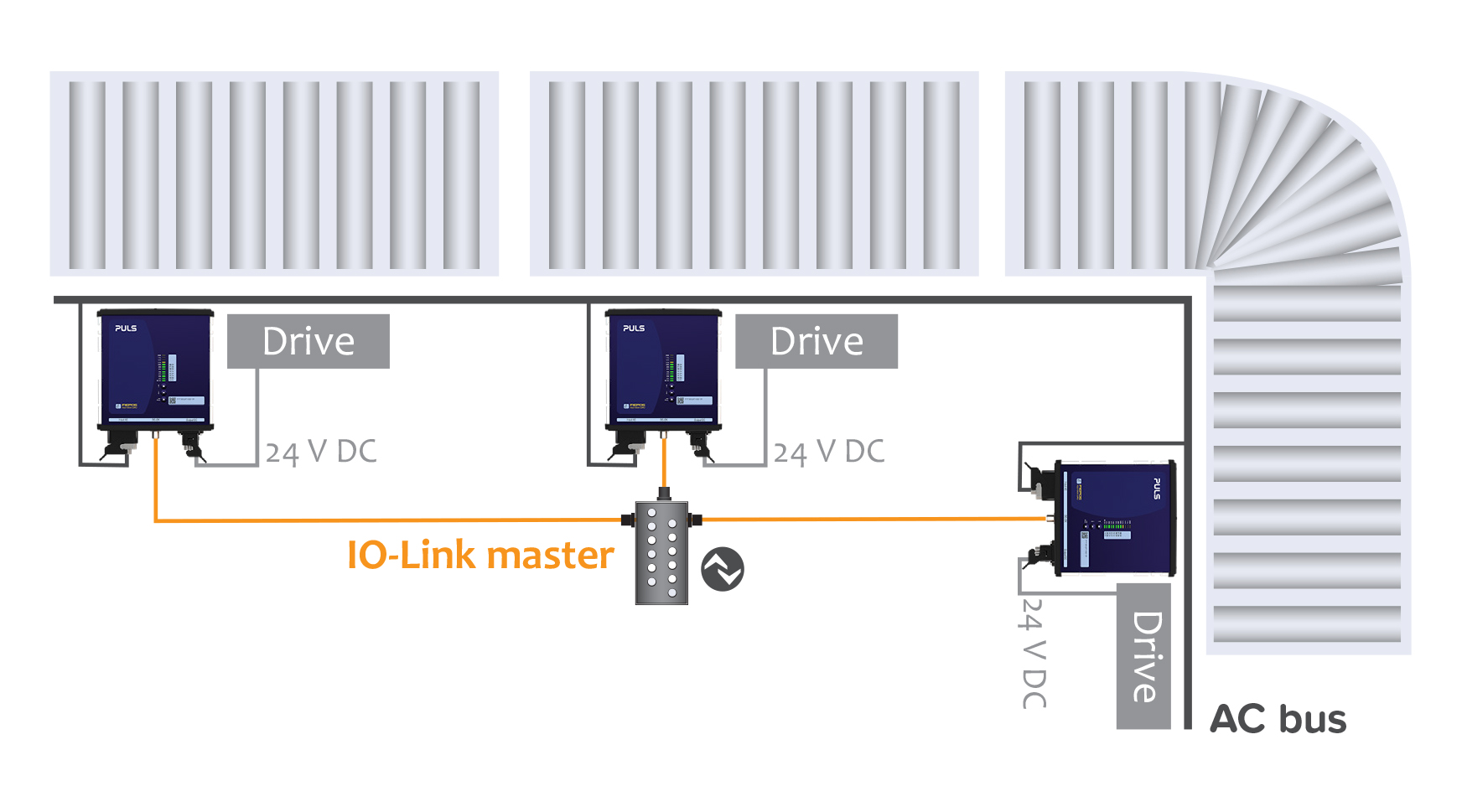Traditional industrial systems have typically used centralised IP20 power supplies housed in control cabinets, distributing power over long cable runs to field devices. This setup often results in power losses, complicated installation, and limited flexibility when systems need to be upgraded or maintained. As manufacturing environments shift towards modular and decentralised designs, the demand for adaptable, field-based power solutions is becoming increasingly important.
The Shift to Modular System Design
 Decentralised system design addresses these challenges by placing power conversion closer to the load. The FIEPOS range of field power supplies has been developed specifically for this purpose. Designed with ingress protection ratings of IP54, IP65 and IP67, these units deliver reliable power distribution directly within the field, reducing the need for extensive cabling and oversized central supplies. This modular approach allows individual machine sections to be assembled, maintained, or expanded independently. System designers can eliminate large control cabinets or replace them with smaller enclosures, freeing up valuable floor space and simplifying installation. Decentralised system design addresses these challenges by placing power conversion closer to the load. The FIEPOS range of field power supplies has been developed specifically for this purpose. Designed with ingress protection ratings of IP54, IP65 and IP67, these units deliver reliable power distribution directly within the field, reducing the need for extensive cabling and oversized central supplies. This modular approach allows individual machine sections to be assembled, maintained, or expanded independently. System designers can eliminate large control cabinets or replace them with smaller enclosures, freeing up valuable floor space and simplifying installation.
IPD offers FIEPOS power supplies in both single-phase and three-phase models, providing flexible solutions suited to a wide range of industrial applications. They come with multiple connector options, including 7/8”, Han Q series, and M12 types, allowing easy integration into existing systems. Communication and monitoring are supported through IO-Link, providing reliable data exchange and diagnostic access for predictive maintenance or performance monitoring.
A key feature of the range is the eFused variant, which includes up to four electronically current limited outputs. This design enables selective power distribution, fault protection, and current monitoring directly in the field. In the event of a fault, only the affected output is isolated, minimising downtime and maintaining overall system availability.
Field Application Example
In a conveyor system powered by FIEPOS, each section of the conveyor can be supplied independently using decentralised power modules. This configuration supports modular construction, where individual conveyor segments can be installed, replaced or extended with minimal disruption. The result is a flexible, energy efficient, and easily maintainable system design suited to modern manufacturing environments.

Operational Benefits
- Space Savings and Flexibility
The compact housing with IP54, IP65 and IP67 protection enables direct field installation without additional enclosures. Flexible connector options simplify integration and reduce wiring complexity.
- High System Availability
Selective channel protection ensures that only the faulty output is isolated, maintaining power to other circuits and avoiding unnecessary downtime.
- Environmentally Responsible Design
Operating at greater than 95% efficiency, FIEPOS units remain within defined thermal limits. This design eliminates the need for environmentally harmful potting compounds used for cooling electronic components.
- Ease of Use
Output voltage and current limits (on eFused versions) can be configured and monitored directly via the integrated LED interface and push button controls. This simplifies commissioning and on-site adjustment without the need for additional equipment.
The FIEPOS field power supply delivers a simpler and more flexible approach to powering modular systems. Its decentralised design reduces cabling, installation effort, and downtime, improving system reliability. The result is a smarter, space saving power solution that supports long term efficiency and easier maintenance.
To learn about the FIEPOS range, contact IPD today. |